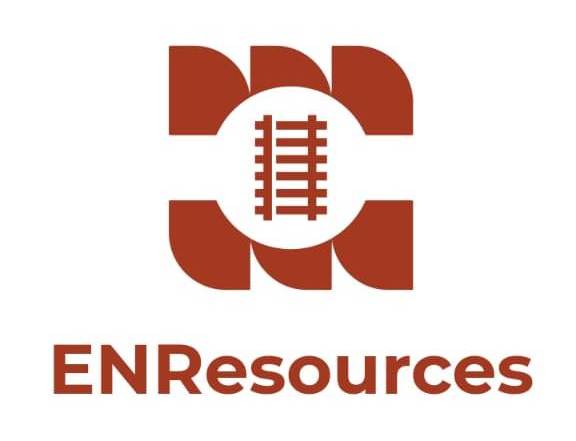
Photo by cottonbro studio on Pexels
Introduction
Choosing a dissertation topic can be a daunting task that requires thorough research and self-evaluation. A dissertation is a critical piece of academic writing that showcases a student's knowledge, research, and analytical skills. The choice of the topic will determine the direction and success of the entire project. A student's choice of dissertation topic should align with their interests, expertise, and career aspirations. This article outlines ten critical questions that students should ask themselves before selecting a dissertation topic, along with possible answers.
Question 1: What are your research interests?
Students should choose a dissertation topic that they are passionate about and intrigued by. Their research interests can help them narrow down the scope of their dissertation and determine the direction of their research. A student's interests could be in the fields of science, social sciences, humanities, arts, or technology.
Possible answer: My research interests revolve around social change, and I want to explore how social media can influence public opinion and change public policy.
Question 2: What is the scope of the research?
The research scope refers to the depth and breadth of the study. Students should determine the scope of their research by identifying the specific variables they want to explore and define. A narrow research scope will enable students to delve deep into the subject, while a broad scope will lead to a superficial analysis.
Possible answer: My research will explore how social media trends have influenced public opinion and policy change in the United States over the past decade.
Question 3: What is the significance of the research?
Students should identify the significance of their research by asking themselves, "why is this research important?" The research should add value to a specific field of study, address a current issue, or contribute new knowledge to the existing literature.
Possible answer: My research will contribute to the field of political science by investigating the role of social media in shaping public opinion and enacting policy change.

Photo by Mikhail Nilov on Pexels
Question 4: What are the resources needed to conduct the research?
Students should determine the resources they require to conduct their research. Resources may include participants, data, books, articles, or software.
Possible answer: My research will require access to social media platforms like Twitter, Facebook, and Instagram, as well as previous studies on social change and public opinion.
Question 5: What is the scope of the literature review?
A literature review is a critical aspect of dissertation writing that involves synthesizing existing literature on a specific topic. Students should determine the scope of their literature review by identifying the specific research areas they want to explore and the relevant studies they will need to review.
Possible answer: My literature review will explore existing studies on the effects of social media on public opinion and policy change in the United States.
Question 6: What are the potential research limitations?
Students should identify the potential limitations of their research. Limitations may include data collection issues, time constraints, ethical concerns, or lack of participants.
Possible answer: One of the limitations of my research is the potential bias in social media data and the lack of representativeness of the sample.

Photo by Thirdman on Pexels
Question 7: What is the research methodology?
Students should describe the research methodology they will use to conduct their study. The methodology should align with the research questions and objectives and should be appropriate for the research design.
Possible answer: I will use a mixed-methods approach to collect and analyze social media data and conduct surveys to understand public opinion trends.
Question 8: How long will the research take?
Students should estimate the time it will take to conduct research, analyze data, and write their dissertation. Students should allocate sufficient time for data collection, analysis, and literature review.
Possible answer: My research will take approximately 18 months to complete, including six months for data collection and analysis, six months for literature review, and six months for writing.
Question 9: What are the potential ethical considerations?
Students should identify any potential ethical considerations that may arise during their research. This may include issues related to data privacy, confidentiality, informed consent, and participant protection.
Possible answer: I will seek informed consent from study participants and ensure that their data is kept anonymous and confidential.
Question 10: What is the potential impact of the research?
Students should identify the potential impact of their research and describe how it can benefit a particular field of study or a specific population.
Possible answer: My research can contribute to a better understanding of the role of social media in shaping public opinion and policy change, which can inform policymakers and organizations in their communication strategies.

Photo by Christina Morillo on Pexels
Conclusion
Choosing a dissertation topic can be a challenging task that requires careful consideration of many factors. By answering the ten questions outlined in this article, students can narrow down their research interests, determine the research scope and methodology, identify potential limitations and ethical considerations, estimate the time required, and become aware of the potential impact of their research. By doing so, students can choose a dissertation topic that aligns with their interests, expertise, and career aspirations.
About the Author

Emmanuel has over 20 years of experience as a freelance research writer, project manager, and business development professional. He has a strong background in delivering high-quality research-based content across various industries. His writing style is versatile, allowing him to adapt to different subjects and formats, including academic papers, market research reports, and business proposals. You can find inspiring educational and career resources in areas like career readiness, dissertation writing, employability skills, global entrepreneurship, and much more on his blog site.
Citations:
- Badiru A.B. (2012). International for Research. Springer Science & Business Media.
- Bownes, J. (2023). The Science Student’s Guide to Dissertations and Research Projects. Bloomsbury Publishing.
- Brown, R.B. (2006). Doing Your Dissertation In Business And Management: The Reality Of Researching And Writing. London: Sage.
- Creswell, J. W. (2014). Research design: Qualitative, quantitative, and mixed methods approaches (4th ed.). Sage Publications.
- Hammond, J.P. and Lester, P.E. (2021). The Do’s and Don’ts of Completing the Ed.D. Dissertation. Rowman & Littlefield.
- Hart, C. (2005). Doing your masters dissertation: realizing your potential as a social scientist. London ; Thousand Oaks, Calif.: Sage Publications.
- Horn, R. (2012). Researching and writing dissertations: a complete guide for business and management students. London: Chartered Institute Of Personnel and Development.



